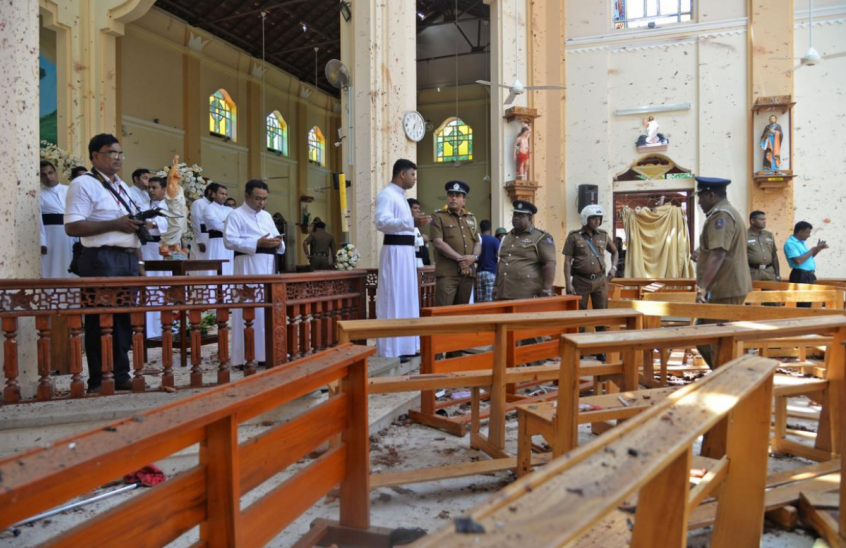
The Easter Sunday bombings in Sri Lanka in which at least 290 people died have been blamed on a little known hardline Islamist group.
The government named the Sri Lanka Thowheed Jamath (SLTJ) as suspects in the attacks, which were spread across three churches and four luxury hotels. It is believed that they may have been assisted by an international network.
The group has not come forward to claim responsibility for the attacks but were named by government spokesman, Rajitha Senaratne, who said that a warning had been received in connection with the SLTJ.
"Fourteen days before these incidents occurred, we had been informed about these incidents," Senaratne told a press conference in the capital, Colombo.
Senaratne added that the names of some of the suspects had been received by Sri Lankan authorities earlier this month.
"On 9 April, the chief of national intelligence wrote a letter and in this letter many of the names of the members of the terrorist organisation were written down," he said.
Mano Ganesan, Minister of National Integration, had earlier admitted the government was aware of a possible threat of attack prior to Sunday's bombings, which ripped through churches as they celebrated Easter Sunday, the holiest day in the Christian calendar.
He tweeted: "A week before, my Ministerial Security Division (MSD) officers had been warned by their Division on two suspected suicide bombers in Colombo targeting politicians."
Sri Lankan Prime Minister Ranil Wickremesinghe, who visited one of the damaged churches on Sunday, had questioned why the warnings were not acted upon.
Mr Wickremesinghe told reporters that the government had been "aware of information regarding a possible attack".
"We must look into why adequate precautions were not taken. Neither I nor the ministers were kept informed," he said.
Security experts earlier told Reuters that the attacks bore the hallmarks of al-Qaeda or the Islamic State.
"These synchronized attacks are out of the ordinary for Sri Lanka. Compared with similar attacks in the Middle East and Southeast Asia, it has the DNA of attacks carried out by Islamic State and al Qaeda," said Alto Labetubun, an anti-terrorism expert who has researched the two groups for a decade.













